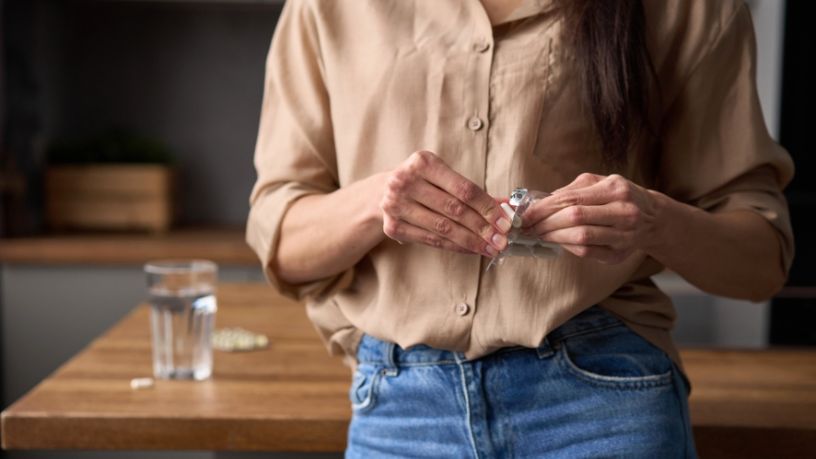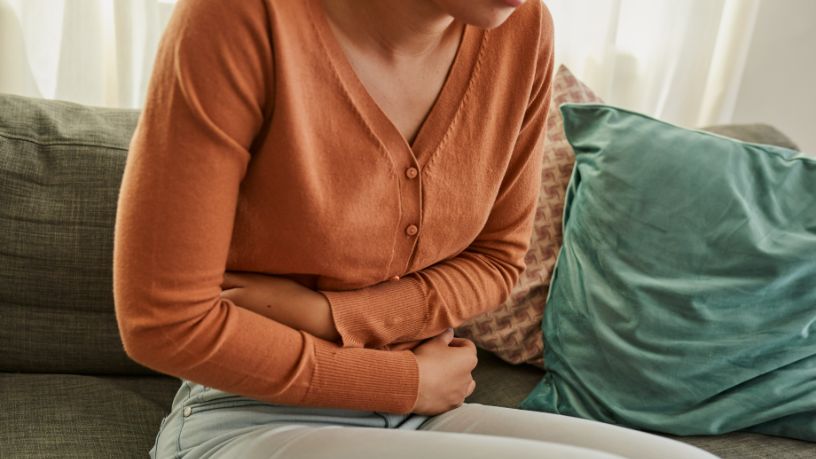Gastro is a highly contagious infection that can result in symptoms like vomiting and diarrhoea.
Key takeaways
You may be more likely to contract or fall seriously ill from gastro. Find out who’s most at risk.
Avoid gastro by following our top safety tips, and learn what to do if you contract the infection.
There’s a good chance you’ve had gastro in your life, but how much do you actually know about it?
Here, we look at the basics, including the potential causes of gastro plus top tips for avoiding it.
What is gastro?
Gastroenteritis (or ‘gastro’) is a highly contagious infection in the digestive system which can lead to symptoms such as vomiting and diarrhoea.
There’s a variety of potential causes of gastro, but the condition usually occurs when you come into contact with:
- viruses
- bacteria
- parasites
- bacterial toxins
- chemicals
- some medications among certain people (like antibiotics).1
The infection might be transmitted by eating or drinking something contaminated, handling sick animals or coming into contact with microscopic amounts of faeces or vomit from an infected person.
Gastro symptoms usually appear between one and 15 days after exposure. As well as vomiting and diarrhoea, symptoms may include:
- nausea
- stomach pains
- loss of appetite
- bloating
- fatigue and aches.1
While everyone is at risk of gastro, certain people are more likely to contract it and fall more seriously ill. They include:
- older people
- young children
- pregnant people
- people with weakened immune systems.2
How to treat gastro
You can usually recover from gastro without needing to visit a doctor. When you’re recovering from the infection, it’s important to:
- stay home until 48 hours after your symptoms have finished
- regularly wash your hands
- regularly clean and disinfect surfaces
- drink plenty of fluids.
Visit or call your GP if your symptoms are particularly frequent or severe, you have blood or mucus in your stool, you have a fever, or you’re dehydrated. Additionally, children with gastro should visit a GP if they:
- are less than 6 months old
- weigh less than 8kg
- vomit dark green
- live with another health condition
- were prematurely born
- can’t keep food or fluids down
- don’t get better.3
Your doctor may recommend going to the hospital for close monitoring and treatment for dehydration.
Tips for avoiding gastro
As the saying goes, prevention is better than cure. And there are numerous precautions you can take to avoid getting gastro in the first place. These include:
Food safety
To avoid gastro that’s caused by bacteria or parasites in food, it’s important that you:
- wash your hands thoroughly before preparing or eating food
- store raw food such as meat, chicken and eggs separately from ready-to-eat food
- ensure that food is cooked to at least 75°C, where cooking is required
- keep cold foods below 5°C and hot foods above 60°C.
Caring for others with gastro
If you’re caring for someone with gastro, you can lower your chance of contracting the infection by:
- wearing a mask and gloves
- regularly washing your hands with warm soapy water
- using a separate bathroom, if possible
- covering up any cuts or abrasions on your body
- regularly disinfecting shared surfaces.
Travelling
Unfortunately, gastro is a common risk when travelling to certain countries. To lower your chances of getting it, you might:
- talk to your doctor about the destination and potential precautions you might take while you’re there
- pack water purification tablets and other preventative travel medications
- practise common sense when eating food that’s prepared for you (such as asking yourself if it’s safe to eat)
- follow the same tips for caring for someone else with gastro (above) if a person you’re travelling with becomes infected.
While there are no vaccinations for the majority of gastro strains in Australia, the National Immunisation Program provides a free vaccine against the rotavirus for infants under 6 months of age.


At Bupa, trust is everything
Our health and wellbeing information is regularly reviewed and maintained by a team of healthcare experts, to ensure its relevancy and accuracy. Everyone's health journey is unique and health outcomes vary from person to person.
This content is not a replacement for personalised and specific medical, healthcare, or other professional advice. If you have concerns about your health, see your doctor or other health professional.
1Better Health Channel. (2021). Gastroenteritis. Victoria State Government, Department of Health.
2Ho, V. (2018). Health Check: how long are you contagious with gastro?. The Conversation.
3Healthdirect. (2023). Gastroenteritis. Healthdirect.
You might also like...
5 things you need to do when you have gastro
Are you or a loved one currently at home with gastro? Here are 5 important things that will help the recovery.
Do probiotic supplements help gut health?
Probiotic supplements claim to improve your gut health, but do they actually work? Find out if you should be taking them.
Sick of being sick? Boost your gut health
If you often get sick, your gut might be telling you that something’s wrong. Learn more about boosting your gut health.
Irritable bowel syndrome (IBS): The basics
IBS is a gut disorder that can include symptoms like diarrhoea, bloating and abdominal pain. Find out about the symptoms and how you can get diagnosed.





